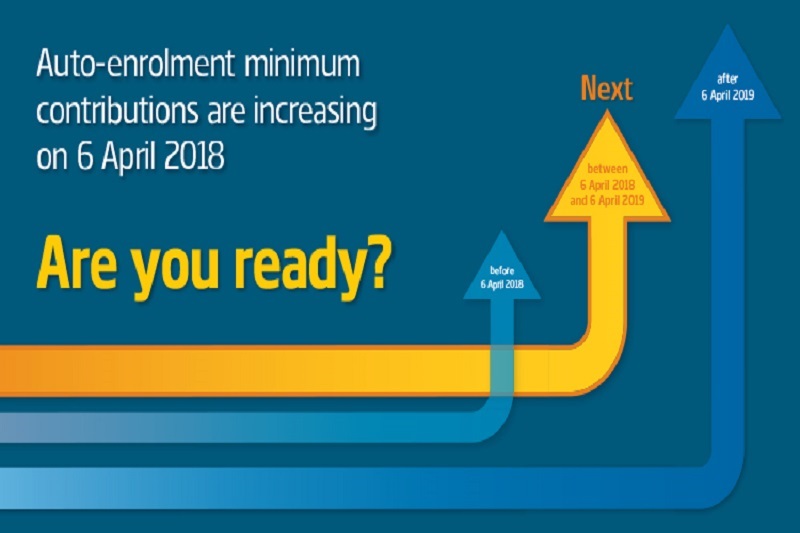
by Michelle Bourne | Mar 27, 2024 | Accounts, PAYE
It’s time to mark your calendars for an important deadline: Tax Year End 2024.
At Quickpaye, we understand the significance of this date for our clients and are here to provide guidance on how to navigate this crucial period effectively.
When Does the Tax Year End?
The 2023/24 tax year concludes on 5 April 2024. This date signals the deadline for various tax-related activities. It’s the final day to ensure that your financial affairs are in order for the year, impacting how you plan and submit your taxes.
Why is Tax Year End Important?
Tax Year End represents more than just the close of another fiscal year. It’s an opportunity for individuals and businesses to review their financial records, assess their tax liabilities.
Key Considerations for Tax Year End 2024:
- Review Your Financial Records: Take the time to review your financial records for the 2023/24 tax year. Ensure that all income, expenses, and deductions are accurately recorded. This will form the basis for preparing your tax returns and assessing your tax liabilities. If you need help with your Bookkeeping then pick up the phone and call Quickpaye!
- Submit Tax Returns on Time: The deadline for submitting tax returns for the 2023/24 tax year is 31 January 2025 for online submissions. It’s essential to ensure that your tax returns are filed accurately and on time to avoid penalties and interest charges. If you need a Tax Return to be completed, then call Quickpaye!
How QuickPaye Can Help:
At QuickPaye, we’re committed to helping our clients navigate Tax Year End with ease and confidence. Our comprehensive payroll solutions are designed to streamline the process of managing payroll taxes, ensuring compliance with HMRC regulations and deadlines.
Our team of experts is here to support you every step of the way. We’ll work closely with you to ensure that your financial affairs are in order for Tax Year End 2024, allowing you to focus on what matters most – running your business.

by Michelle Bourne | Apr 5, 2019 | PAYE
There are 7 things you need to do when employing staff for the first time:
- Decide how much to pay someone – you must pay your employee at least the National Minimum Wage.
- Check if someone has the legal right to work in the UK. You may have to do other employment checks as well.
- Check if you need to apply for a DBS check (formerly known as a CRB check) if you work in a field that requires one, eg with vulnerable people or security.
- Get employment insurance – you need employers’ liability insurance as soon as you become an employer.
- Send details of the job (including terms and conditions) in writing to your employee. You need to give your employee a written statement of employment if you’re employing someone for more than 1 month.
- Tell HM Revenue and Customs (HMRC) by registering as an employer – you can do this up to 4 weeks before you pay your new staff.
- Check if you need to automatically enrol your staff into a workplace pension scheme.

by Michelle Bourne | Apr 17, 2018 | auto enrolment, national insurance, National Minimum Wage, PAYE, statutory maternity pay, statutory sick pay
AUTO ENROLMENT PENSION CONTRIBUTIONS INCREASE FROM APRIL
With effect from 6th April, the minimum automatic enrolment (AE) contributions you must pay towards your employees’ pensions will increase. You will now need to contribute at least 2%, whilst the employee is required to contribute 3% themselves through automatic wage deductions. The government has warned that any failure to abide by these new regulations will lead to financial penalties for the organisation in question
STATUTORY PAY RATES TO INCREASE
The weekly pay rates of statutory maternity pay (SMP), statutory adoption pay (SAP), statutory paternity pay (SPP) and shared parental pay (ShPP) will all increase from £140.98 to £145.18.
Coinciding with the new tax year, statutory sick pay (SSP) will increase from 6th April from £89.25 to £92.05 a week. The average weekly earnings limit which an employee must reach to be eligible for these statutory payments will also rise from £113 to £116 a week.
NATIONAL LIVING WAGE AND MINIMUM WAGE INCREASE
You will need to ensure you are paying your employees the new rates.
From the 01st April 2018 the Minimum Wage rates has increased as below:
- 25+ year olds – NMW (National Living Wage) will increase from £7.50 to £7.83 per hour
- 21 – 24 year olds – MW will increase from £7.05 to £7.38 per hour
- 18 – 20 year olds – MW will increase from £5.60 to £5.90 per hour
- 16 – 17 year olds – MW will increase from £4.05 to £4.20 per hour
- Apprentice rate (for apprentices under the age of 19 or 19 and over but in the first year
of apprenticeship) – MW will increase from £3.50 to £3.70 per hour

by Michelle Bourne | Apr 3, 2018 | PAYE
The end of the year is now approaching fast! Have you done your P60’s? Have you made your final submission to HMRC?
Have you informed your staff about the mandatory increase to Auto Enrolment Pension contributions?
Here at Quickpaye we have everything in hand. We are here to help you, don’t struggle anymore!
Just call us or email us and the next Year End will be a breeze! You will not have to do anything except our email informing you that everything has been taken of and all the relative forms have been done and submitted.
Wouldn’t that be nice?

by Michelle Bourne | Dec 18, 2017 | national insurance, PAYE
So it’s that time of year when everyone is trying to feel merry ready for Christmas!
We have sent out some gifts and cards and have received back some lovely messages showing appreciation for our services!
Thank you, and your merry team, for all of your hard work – you really do help to take some of the strain off us ?
We would like to thank all your staff for the continuing excellent service we enjoy from Quickpaye. Your efficiency and extremely swift responses to any queries is acknowledged and highly appreciated.
Thank you for your appreciation and our work as a team.
It is so nice to have such kind words for all our hard work!
So contact us if you would like the strain taken off you!
HAPPY CHRISTMAS AND NEW YEAR TO ALL!

by Michelle Bourne | Nov 29, 2017 | national insurance, PAYE, Personal Allowance
So the Chancellor has raised the Higher Rate income tax personal allowance threshold from £45K to £46,350 from April 2018, and the Lower Rate Threshold will increase by £350 to £11,850.
This means that the new tax codes will increase from 1150L to 1185L in April 2018.
For a typical worker who pays tax in 2018-9, this will be a £1075 reduction in their tax paid, and a Full time Worker who is on the National Living Wage will take home more than £3,800 extra in their wage packet.
But is this good news for the typical worker? Well, the increase in personal allowance may be less generous than you think, since at just over 3%, it was only just in line with inflation!
Given that National Insurance is payable at a rate which is more than £3K below that of income tax, the lowest paid taxpayers may query whether the increase in personal allowance is the right way to support them?
Let me know your thoughts!





